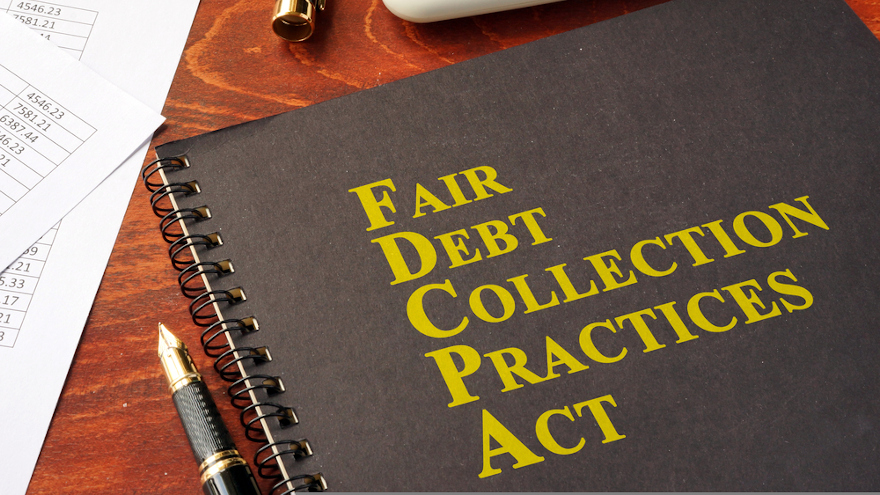CFPB releases final rule to implement FDCPA

Image by Vitalii Vodolazskyi / Shutterstock.com
By subscribing, you agree to receive communications from Auto Remarketing and our partners in accordance with our Privacy Policy. We may share your information with select partners and sponsors who may contact you about their products and services. You may unsubscribe at any time.
WASHINGTON, D.C. –
The Consumer Financial Protection Bureau offered collections and compliance professionals some light reading just before the weekend. It’s mere a 653-page document to update a regulation first passed four decades ago that has taken regulatory officials seven years to get to this juncture.
On Friday, the bureau issued its final rule to restate and clarify prohibitions on harassment and abuse, false or misleading representations, and unfair practices by debt collectors when collecting consumer debt. The regulator explained the rule focuses on debt collection communications and gives consumers more control over how often and through what means debt collectors can communicate with them regarding their debts.
The CFPB added that the rule also clarifies how the protections of the Fair Debt Collection Practices Act (FDCPA), which was passed in 1977, apply to newer communication technologies, such as email and text messages.
The entire new rule can be downloaded on this website.
Initial industry reaction to this rule seemed positive.
“AFSA and its members appreciate the time and consideration put forward by the CFPB in developing its debt collection rules under the Fair Debt Collection Practices Act (FDCPA),” American Financial Services Association senior vice president Celia Winslow said in a statement.
Subscribe to Auto Remarketing to stay informed and stay ahead.
By subscribing, you agree to receive communications from Auto Remarketing and our partners in accordance with our Privacy Policy. We may share your information with select partners and sponsors who may contact you about their products and services. You may unsubscribe at any time.
“Key to this rulemaking was ensuring that creditors would have the ability to contact their customers and work with them to remain current or to assist them if they faced hardships,” Winslow continued. “We have seen how crucial this flexibility can be over the past seven months, and focusing on third-party debt collectors in this rulemaking both protects consumers and means efficient, expeditious resolution by creditors, which in turn also benefits their customers.”
In its own news release, the CFPB pointed out that the rule is the result of a deliberative, thoughtful process spanning more than seven years and reflects engagement with consumer advocates, debt collectors, and other stakeholders.
Further, in developing the final rule, the bureau said it considered the more than 14,000 comments received during the public comment and rulemaking process.
As a result of this feedback, the regulator noted that the rule establishes a presumption on the number of calls debt collectors may place to reach consumers on a weekly basis. A debt collector is presumed to violate federal law if the debt collector places telephone calls to a particular person in connection with the collection of a particular debt more than seven times within seven consecutive days or within seven consecutive days of having had a telephone conversation about the debt, according to the new rule.
The CFPB said that the rule also clarifies how consumers may set limits on debt collection communications to reflect their preferences and the limits on communicating with third parties about a consumer’s debt. The rule requires debt collectors who communicate electronically to offer the consumer a reasonable and simple method to opt out of such communications at a specific email address or telephone number.
The rule also provides that consumers may, if the debt collector communicates through a medium of electronic communications, use that medium of electronic communications to place a cease communication request or notify the debt collector that they refuse to pay the debt.
The bureau went on to mention the rule further clarifies that the FDCPA’s general prohibition on harassing, oppressive or abusive conduct applies to telephone calls as well as other communication media, such as email and text messages, and provides examples demonstrating how the prohibition restricts emails and text messages. It also generally restates the FDCPA’s prohibitions regarding false, deceptive, or misleading representations or means and unfair or unconscionable means, according to the CFPB.
Officials closed by addressing one of the topics on which the bureau acknowledged that it received a great deal of feedback.
The bureau said it is not finalizing the proposed safe harbor for debt collectors against claims that an attorney falsely represented the attorney’s involvement in the preparation of a litigation submission. Officials noted that provision was proposed to bring greater clarity to this issue but, after receiving questions and comments from many stakeholders concerning the proposal, the bureau said it has decided not to finalize that provision.
“With the vast changes in communications since the FDCPA was passed more than four decades ago, it is important to provide clear rules of the road,” CFPB director Kathleen Kraninger said in the news release.
“Our debt collection rulemaking provides limits on debt collectors and provides clear rights for consumers. With this modernized debt collection rule, consumers will have greater control when communicating with debt collectors.”
The CFPB added the final rule also contains provisions on disputes, and record retention, among other topics. The bureau said it intends to issue a second debt collection final rule focused on consumer disclosures in December.


